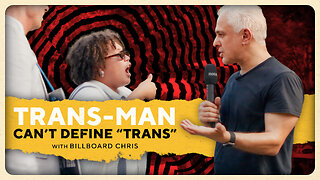Premium Only Content

Africa: Ubuntu Capitalism!!!
Westernized capitalism, famously articulated by Adam Smith in "The Wealth of Nations" (1776), has undergone significant technological and structural changes over the centuries. Yet, its core principles—private ownership, profit motive, market competition, and minimal government interference—have largely remained the same.
In the modern era, we see new manifestations of capitalism. The rise of digital platforms, cryptocurrencies, and the gig economy are contemporary iterations, but they continue to reinforce the foundational aspects of capitalism. Tech giants like Amazon, Google, and Uber dominate markets much like industrial monopolies of the past, driven by profit and competitive advantage.
Despite these changes, the capitalist model consistently perpetuates socio-economic imbalances. Wealth concentration among the elite, income inequality, and exploitation of labor are persistent issues. The flexibility and innovation in the gig economy often come at the cost of workers' rights and job security, mirroring past exploitative labor practices.
For decades, the global economic narrative has been dominated by a false dichotomy: capitalism or socialism. Fears of socialism—state control, lack of individual freedoms, and economic inefficiencies—have often blinded us to alternatives that could harmonize economic growth with social equity.
Now, imagine a world where, instead of following Adam Smith's vision of capitalism, we embraced the African philosophy of Ubuntu. Ubuntu, centered on communal well-being, mutual care, and interconnectedness, offers a stark contrast to Western capitalism’s focus on individual profit and competition. This philosophy, deeply ingrained in African culture, could have been evolved into a sustainable economic model that emphasizes shared prosperity.
From 1776 onwards, Ubuntu capitalism would have prioritized shared prosperity over individual wealth accumulation. Businesses and communities would operate on principles of collective ownership and responsibility. Instead of cutthroat competition, collaboration and mutual support would drive economic activity. Resources would be managed sustainably, with the community's long-term welfare in mind.
In such a world, income inequality would be less severe, as wealth and resources would be more evenly distributed. Education, healthcare, and social services would be universally accessible, reflecting the Ubuntu principle that one's well-being is inextricably linked to the well-being of others. Economic policies would emphasize environmental stewardship, ensuring that development does not come at the expense of future generations.
The global economy under Ubuntu capitalism would foster inclusivity and social cohesion, addressing socio-economic imbalances at their roots. While challenges would still exist, a focus on community and shared humanity would create a more equitable and sustainable world.
So, why do South Africa and other African countries continue to fight a losing battle as they try and implement Western capitalism if they would benefit more from taking ownership and leading the way with an Ubuntu economy?
Embracing an Ubuntu economy, however, is not without its hurdles, however, these hurdle are magnified and seem daunting due to a lack of political will, fear of change and the absence of transformative and innovative leadership.
Imagine, for a moment, the challenges faced by South Africa, a country with a complex history of apartheid and colonialism. The legacy of these systems has left deep socio-economic scars, perpetuating inequality and poverty.
In this context, adopting an Ubuntu economy could serve as a powerful tool for healing and transformation. By focusing on critical thinking, creativity, and empathy, we can nurture a generation of leaders who understand and value the principles of Ubuntu.
By equipping individuals with the tools necessary to contribute meaningfully to their communities, we can create a truly collaborative and sustainable economy.
Admittedly, the path towards an Ubuntu economy is not without its obstacles. Resistance from those who benefit from the current system, vested interests, and the sheer inertia of the status quo can make change seem daunting.
However, by fostering dialogue, building coalitions, and harnessing the collective power of communities, we can create a groundswell of support for an economic model that puts people and the planet first.
Rather than viewing Westernized capitalism and Ubuntu economics as mutually exclusive, we can explore ways to blend the best of both worlds. By incorporating the strengths of Western capitalism, such as innovation and efficiency, with the values of Ubuntu, such as communalism, collaboration and sustainability, we can craft a hybrid model that addresses the shortcomings of each system while harnessing their respective strengths.
Ultimately, the choice before us is clear: we can continue down the well-trodden path of Westernized capitalism, with its attendant socio-economic imbalances and environmental degradation, or we can boldly chart a new course towards an Ubuntu economy that prioritizes shared prosperity and communal well-being.
By embracing the wisdom of the past and the possibilities of the present, we can create a future that balances the needs of the individual and the community, ensuring a more equitable and sustainable world for all.
My Question: How do I, Mr Grassroot, find an influential ear?
Dries Badenhorst
drieswp@gmail.com
-
 1:05:32
1:05:32
Timcast
2 hours agoNepal's Government COLLAPSES, Gen Z REVOLUTION Over Social Media Ban, 19 Dead
79.2K46 -
 2:06:23
2:06:23
Steven Crowder
4 hours agoBrian Stelter's Delusional Response to the Charlotte Stabbing is Everything Wrong With Media
223K204 -
 LIVE
LIVE
The Mel K Show
1 hour agoMORNINGS WITH MEL K - Suicidal Empathy, Denial of Truth & Rewriting History as a Weapon 9-9-25
615 watching -

Clownfish TV
2 hours agoXbox Game Pass Fail! Paranormal Chum Bucket, More! | DREZZED News Live
3.98K -
 LIVE
LIVE
IrishBreakdown
2 hours agoNotre Dame vs Texas A&M Preview - Irish Must Show Grit In Home Opener
86 watching -
 LIVE
LIVE
Rebel News
1 hour agoPoilievre on housing crisis, Eby backs ending TFWP, Media mocks Alberta 'book ban' | Rebel Roundup
296 watching -
 LIVE
LIVE
TheAlecLaceShow
1 hour agoGuests: Rep. Burgess Owens, Mike Howell | Trump Condemns Ukraine Refugee Murder | The Alec Lace Show
73 watching -
 59:03
59:03
The Rubin Report
3 hours agoCharlie Kirk Notices Something in the Charlotte Stabbing That Most Are Afraid to Admit
32.9K67 -
 2:03:56
2:03:56
Benny Johnson
4 hours agoBOMBSHELL: Massive Judicial Corruption Scam That ALLOWED Black Killer to Murder in Charlotte EXPOSED
48.3K71 -
 13:24
13:24
Peter Boghossian
3 days agoWhy Can't TRANS People Answer This Simple Question, "What Is Trans?"
7.19K5